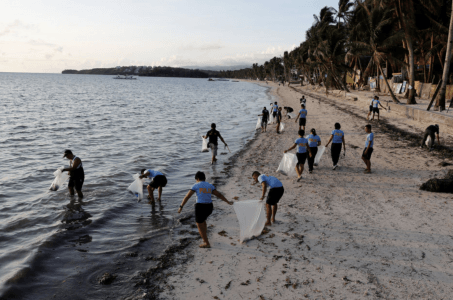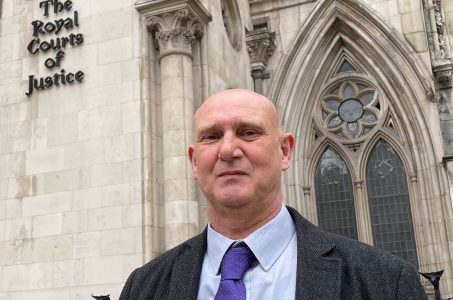HUD Provides $200M to Native Americans, Casinos Remain Closed
Posted on: April 12, 2020, 09:56h.
Last updated on: April 12, 2020, 12:54h.
While tribes are increasingly short on revenue given the closing of gaming venues during the coronavirus pandemic, the US Department of Housing and Urban Development (HUD) has come up with $200 million in grants for Native Americans located in 35 states. The block grant money can be used for housing costs related to the outbreak.

Among the tribes that will benefit from the initiative are Massachusetts’ Mashpee Wampanoag Tribe and the Wampanoag Tribe of Gay Head.
The Cape Cod Times reported that the Mashpee Wampanoag Tribe received $248,685. The Wampanoag Tribe of Gay Head in Aquinnah received $144,561.
Ironically, the Trump administration recently ordered the Mashpee Wampanoag’s reservation to be “disestablished.” That move by the Interior Department has also led to a planned $1 billion Taunton casino to become highly unlikely, as it recently lost one major legal battle.
Under the Mashpee Wampanoag disestablishment order, the tribe’s 321 acres must be taken out of trust unless it can somehow win a challenging legal victory, or can get Congressional intervention. Tribal Council Chairman Cedric Cromwell has pledged to “take action to prevent the loss of our trust status.”
The tribe owes Genting Malaysia $440 million for the casino giant’s prior backing of the troubled gaming project. As recently as November, Cromwell reaffirmed the casino would be built.
As of Saturday, Massachusetts has seen 22,860 COVID-19 cases. The state’s total number of deaths related to the outbreak is 686.
Massachusetts has put into place a stay-at-home advisory warning. There is also a required closing of nonessential businesses through May 4.
The Wampanoag Tribe of Gay Head in Aquinnah is trying to open a bingo hall on Martha’s Vineyard. It also has been the topic of legal and regulatory challenges.
Arizona Tribes Also Benefit from HUD Funds
Under the national relief plan, tribes in Arizona will also receive from HUD about $37 million for coronavirus-related expenses, the Arizona Mirror reported. A large share of that will be spent on the Navajo Nation in Arizona, with $22.3 million going to Window Rock, the Mirror said.
The Navajo have seen 488 cases of coronavirus. There were 20 deaths as of Friday.
When President Trump signed the Coronavirus Aid, Relief, and Economic Security Act into law, he wanted to ensure that American Indian Tribes received the assistance they needed to combat the coronavirus,” HUD Secretary Ben Carson said in a statement. “HUD remains committed to providing tribes with the tools they need during this national emergency to continue to create safe, affordable housing opportunities for their communities.”
Beyond the block grants, the Coronavirus Aid, Relief, and. Economic Security (CARES) Act provides $10 billion to Indian Country, the Mirror said.
Nationally, tribal gaming operators asked the federal government for an $18 billion relief package. The tribes with insufficient cash reserves are most at risk for permanently closing
Lost Revenue at Tribal Casinos Totals $1.5B
Nationally, during the first two weeks of closure of tribal casinos, Meister Economic Consulting estimated that the gaming properties saw $1.5 billion lost in gaming and non-gaming revenue. Also, some 296,000 people are now out of work, and there are $332 million in lost wages as a result of the closings. There is also $240 million in lost taxes and revenue sharing received by federal, state, and local governments.
Alan Meister, CEO and principal economist of the firm, said, “These closures are causing significant detriment to Native American tribes, many of which rely heavily on gaming related revenue to pay for tribal government operations, infrastructure, and social and economic programs and services for a Native American population that is already substantially disadvantaged.”
Related News Articles
Most Popular
Mirage Las Vegas Demolition to Start Next Week, Atrium a Goner
Where All the Mirage Relics Will Go
Most Commented
-
Bally’s Facing Five Months of Daily Demolition for Chicago Casino
— June 18, 2024 — 12 Comments -
Chicago Pension Mess Highlights Need for Bally’s Casino
— July 2, 2024 — 5 Comments
















No comments yet